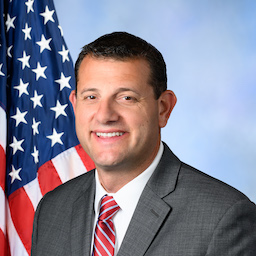- Home
- About
-
Services
- Art Competition
- Community Project Funding Map
- Congressional App Contest
- Congressional Certificate
- Event Request
- Flag Request
- Grants
- Grant Letters of Support
- Help with a Federal Agency
- Inauguration
- Internships
- Kids Page
- Meeting Request
- Service Academy Nominations
- Tour Requests
- Vietnam Veteran Commemoration
- Government Shutdown FAQ
- Issues
- Media
- Contact

Press Releases
House Passes Congressman Valadao’s Legislation to Combat Substance Use Disorder
Washington,
December 12, 2023
|
Faith Mabry
Tags:
Health Care
Congressman David G. Valadao (CA-22) released the following statement after the House passed H.R. 4531, the Support for Patients and Communities Reauthorization Act. Among other provisions intended to combat the opioid crisis in America, the bill includes Rep. Valadao’s Combatting Substance Use Disorder Act.
WASHINGTON – Today, Congressman David G. Valadao (CA-22) released the following statement after the House passed H.R. 4531, the Support for Patients and Communities Reauthorization Act. Among other provisions intended to combat the opioid crisis in America, the bill includes Rep. Valadao’s Combatting Substance Use Disorder Act. This legislation makes permanent and expands a reporting requirement on mental health, substance use disorder treatment, and prevention services in the Medicaid beneficiary population. This data, commonly referred to as the Transformed Medicaid Statistical Information System (T-MSIS) SUD Data Book, is critical in informing action on how to best address this public health crisis. “The opioid epidemic continues to have a devastating impact on communities across the country, especially here in the Central Valley,” said Congressman Valadao. “Today I was proud to support legislation to ensure critical prevention programs, life-saving treatments, and long-term recovery services are available to those individuals working to overcome their substance use disorders. The language I secured in this bill will help to inform Congress, public health experts, and Medicaid providers about how to best meet the needs of individuals struggling with substance abuse and mental health disorders.” Background: In 2018, Congress passed the SUPPORT Act, which directs the U.S. Department of Health and Human Services to annually publish granular, behavioral health data on the prevalence of substance use disorders in the Medicaid beneficiary population, as well as the treatment services provided by Medicaid. This new dataset – commonly referred to as the Medicaid TMSIS Data Book – has helped close the data gap in our understanding of Medicaid’s role in covering such services. Disorders being tracked include alcohol, opioids, tobacco, cannabis, and stimulants. Treatments tracked include counseling, detox, emergency services, inpatient care, medication management, consultations, and peer/community support. The requirement for States and the Center for Medicaid & Medicaid Services to continue reporting and publishing this data will expire this year if Congress does not act to make this reporting requirement permanent### |

